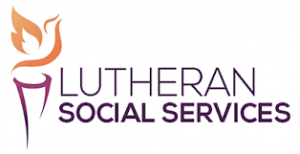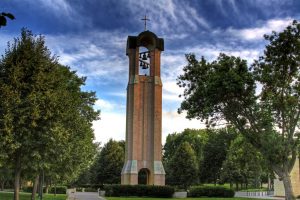Concordia College is known for many things, including the Concordia Choir, the Christmas Concert, and of course, Kernel Cobb. However, the institution is also renowned for its high academic standard and liberal arts education, which emphasizes students being responsibly engaged in the world.

The chemistry department is not exempt from this academic standard. It provides students a strong foundation in chemistry while simultaneously demonstrating how chemistry is used in the world. No class exemplifies this more than Neurochemistry 475. The course not only allowed me to investigate the neurochemistry of prominent diseases and disorders but also forced me to use this knowledge and help the people of my community. These experiences outside of the classroom helped me learn things you can’t learn from a book. Not only have I been able to learn about the chemistry of debilitating diseases such as obesity, addiction, and Alzheimer’s, but I have also been able to positively impact my community. This is the emphasis of being responsibly engaged in the world and encompasses the five goals for liberal learning.
The first goal of liberal learning is to instill a love for learning. Since I have been a small child, I have always loved to learn. My mother would often set a timer to put a limit on the number of questions I could ask. This course fostered my natural inquisitiveness. Attempting to understand the chemical problems of the brain as well as discussing potential cures for these diseases hooked me from the first week of class. However, the PEAK aspect of the course opened my eyes to a new style of learning. The hands-on education I experienced by working with Lutheran Social Services to help the refugee population of Fargo-Moorhead not only fueled my love of knowledge but has given me a thirst to see the ways Concordia can benefit the surrounding community.
This course also helped me develop foundational skills and transferable intellectual capacities, the second goal for liberal learning. The ability to communicate with other individuals was essential for this course. The Wednesday speed dating class and the Friday discussions enhanced my ability to discuss complex scientific topics in ways that most people could understand. Imperative to this was the “and, but, therefore,” format which was drilled into us. Once again, the PEAK aspect was vital to the refinement of my communication skills. Constant communication between the group members of our project was imperative for its success, but more importantly, effectively communicating with LSS has set the foundation for our refugee mentorship program.
The third goal of liberal learning is developing an understanding of disciplinary, interdisciplinary, and intercultural perspectives and their connections. The research associated with our PEAK project required an understanding of chemistry and psychology as well as social work. Examining the impact of PTSD on the refugee population of Fargo required in-depth knowledge of chemistry as well as psychology. However, when working with the community, it is imperative to look past the chemistry and sciences and look at what is truly important, the people. The refugees come from a variety of areas, and as such, being aware of their culture is imperative to understand how the symptoms of PTSD will manifest. Working within the chemistry department and social work departments, as well as LSS, has allowed me to know of the importance of interdisciplinary and intercultural perspectives.

Neurochemistry has also expanded my cultural, ethnic, physical, and spiritual self-understanding. Examining the role of chemistry in several neurogenerative diseases developed my physical understanding of the brain. Discussions around preventing several of these diseases also crossed into ethical opinions. For example, using CRISPER to alter human genes is a moral question, the near future will have to address. The PEAK project also expanded my cultural and ethical understandings of the world. Being able to talk with LSS and understanding the cultural backgrounds of the refugee populations in Fargo broadened my cultural perspectives.
The final goal for liberal learning is to encourage responsible participation in the world. The proposed program with LSS is a prime example of how this course has helped inspire us to participate in the world. By using our knowledge of chemistry as well as the other skills that are given to us by Concordia, we can directly help those of us in the community.
Concordia College has shaped me into the man I am today. The high-quality education offered by the chemistry department has allowed me better to understand the role of chemistry in nature. The faculty have shown me the importance of further education and how this education can benefit society. For these reasons, I have decided to pursue a Ph.D. in chemistry. Concordia College and the liberal arts education has given me the tools, both in and outside of the classroom, to benefit society. A quote from Dr. Jensen demonstrates the importance of liberal arts education. “People come to Concordia for several reasons; however, no one ever comes here for the thing that could be most important. The liberal arts education is the most important gift this institution can give its students.” The liberal arts education of Concordia has expanded my knowledge, cultural and spiritual understandings, and allowed me to look past my own desires to how I can impact those around me. I owe all my future endeavors to Concordia College. Thanks for everything and I hope to make you all proud.

